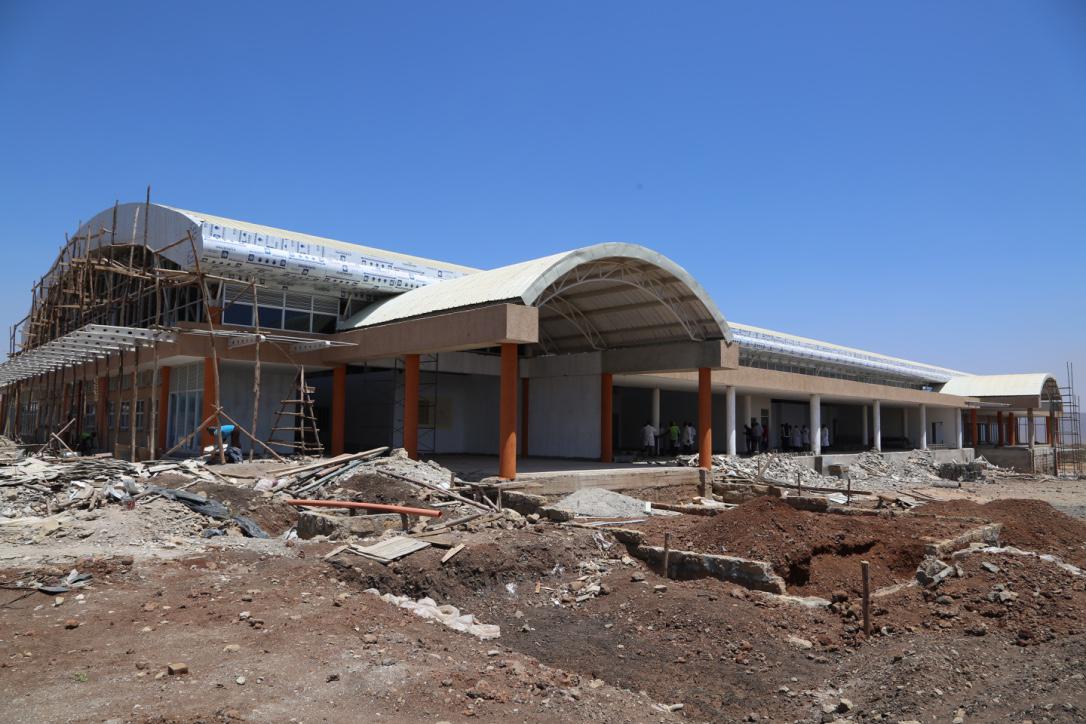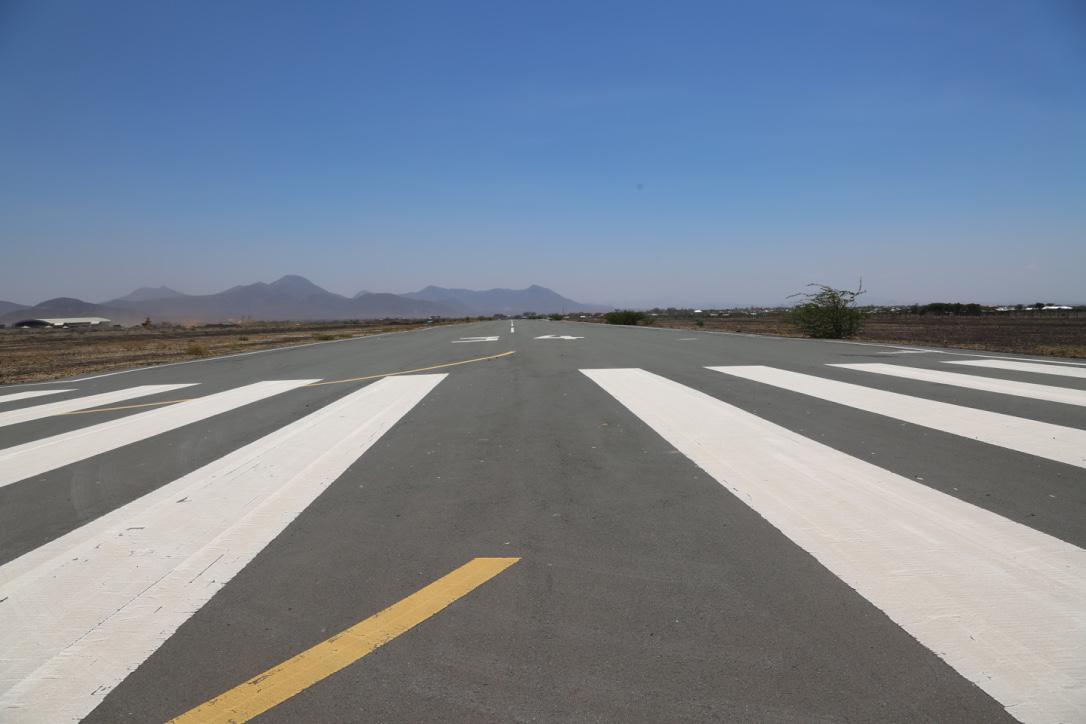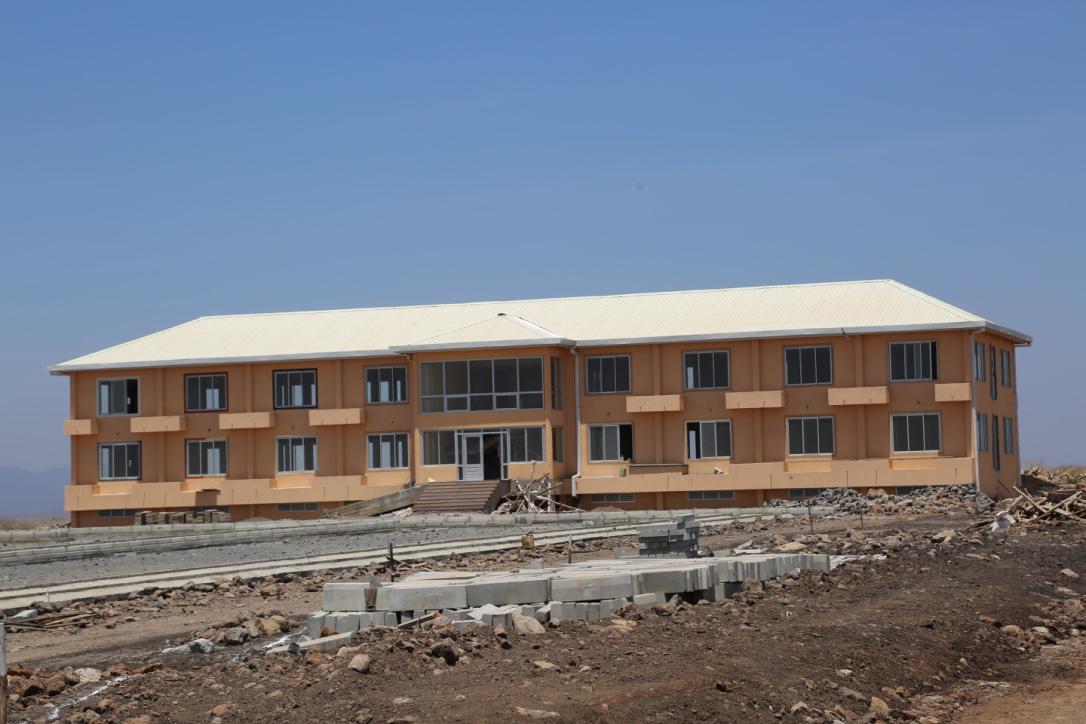Geza Ulole
JF-Expert Member
- Oct 31, 2009
- 59,226
- 79,517
These two reports have implications on the ambitious LAPSSET project as Ethiopia and South Sudan are envisaged members of this project. Can someone explain to us how is the project now? With these two vital members inclined towards Djibouti?
South Sudan 'leaning towards Djibouti oil pipeline'
By MOHAMMED AMIN | Friday, August 23 2013 at 10:33
South Sudan is increasingly looking at Djibouti as the more feasible option of exporting its oil, a senior official said.
The undersecretary in South Sudan's finance minister Wani Gweri told this writer in an interview that government surveys showed that transporting oil through Djibouti was more cost-effective than doing so through Kenya.
"Currently the shortest and cheapest route for this pipeline is through Djibouti, because our fields are nearer to Ethiopia and Djibouti than to Kenya or Sudan, but it depends on the locations of our fields in South Sudan," he said.
"The United States, China, Germany and Japan are seeking approval to construct the new oil pipeline to carry South Sudan's oil to the international market through Kenya or Djibouti," Mr Wani added.

South Sudan is exploring constructing an oil pipeline either through to Djibouti or via Kenya. IMAGE | BBC
Some reports said that such a pipeline would cost more than $3 billion and would need more than three years to be accomplished.
South Sudan is landlocked country, but has an estimated three billion barrels of oil reserves. The country currently produces 300,000 barrels per day. The official said that Juba was now evaluating bids for the alternative pipeline.
"We deal with this matter in a transparent way, so we will declare the details at the end of the competition which is organised by our ministry of oil and energy, but right now we can't make it public," Mr Wani said.
"The final determination will depend on the result of [the bid] and the locations of the fields, so we need to discuss several alternatives," he said.
South Sudan has since independence in July 2011 exported its oil through former civil war Sudan. But a dispute over oil transit fees among other unresolved issues resulted into an escalation of tension between the two states, leading to the total shutdown of oil production in 2012.
Agreed to pay
South Sudan has agreed to pay Sudan $23 per barrel for use of its pipeline, refineries and ports.
Khartoum has however repeatedly threatened to close the flow of southern oil through its territories, claiming that South Sudan is supporting insurgents against it.
Juba denies providing any support to Sudanese rebels.
British-based campaign group Global Witness has urged South Sudan follow more transparent procedures regarding oil revenues, asking Juba to enact the legislation of oil management which has been passed by parliament.
"[The] risk of corruption and mismanagement in the oil sector remains high with rumours that new oil contracts may have been awarded over recent months,
apparently without the open, competitive, and transparent bidding processes included in the 2012 oil legislation," the organisation said in a press release.
"South Sudan has attempted to sell several unexplored oil blocks for $1 billion," the organisation added.
China is the biggest investor in oil field in both Sudan and South Sudan, but many European oil companies like French Total and British White Nile companies had signed some exploring contracts in some areas in South Sudan with former SPLM rebels during the civil war between the two countries.
South Sudan
South Sudan 'leaning towards Djibouti oil pipeline': Business and Finance-africareview.com
===============================================================================================================
Construction At Nagad Railway Station in Djibouti Officially Launched
In a groundbreaking ceremony held Sunday (July 7) in Djibouti, Prime Minister Hailemariam Desalegn and President Ismail Omar Guelleh launched construction of the new Nagad Railway Station.
Construction of the station, which will form part of the 800km Addis Ababa - Dewele - Djibouti route, was also inaugurated in the presence of Ethiopia's Minister of Foreign Affairs, Dr. Tedros Adhanom.
Following the groundbreaking, Prime Minister Hailemariam stated that the railway will have a significant impact on the region, namely in bolstering regional economic integration.
Similarly, President Guelleh said "the infrastructure will advance economic cooperation and social connections between the two sisterly countries". Both leaders described the occasion as a historic day for the region.
On his part, Dr. Tedros explained that the $4.5 billion USD railway project exemplifies Ethiopia's foreign policy which aims to fight poverty and build a prosperous nation and region. He went on to explain via his twitter account that the costs of the massive rail project would be shared by both governments and that, on the Ethiopian side, 20% of the construction had already been completed.
He expressed his happiness that everything was ready on the Djiboutian side, including all necessary equipment, in order to begin construction of the Nagad Station. He concluded by emphasizing that July 7 was a great and historic day for both countries.
allAfrica.com: Djibouti: Construction At Nagad Railway Station in Djibouti Officially Launched
South Sudan 'leaning towards Djibouti oil pipeline'
By MOHAMMED AMIN | Friday, August 23 2013 at 10:33
South Sudan is increasingly looking at Djibouti as the more feasible option of exporting its oil, a senior official said.
The undersecretary in South Sudan's finance minister Wani Gweri told this writer in an interview that government surveys showed that transporting oil through Djibouti was more cost-effective than doing so through Kenya.
"Currently the shortest and cheapest route for this pipeline is through Djibouti, because our fields are nearer to Ethiopia and Djibouti than to Kenya or Sudan, but it depends on the locations of our fields in South Sudan," he said.
"The United States, China, Germany and Japan are seeking approval to construct the new oil pipeline to carry South Sudan's oil to the international market through Kenya or Djibouti," Mr Wani added.

South Sudan is exploring constructing an oil pipeline either through to Djibouti or via Kenya. IMAGE | BBC
Some reports said that such a pipeline would cost more than $3 billion and would need more than three years to be accomplished.
South Sudan is landlocked country, but has an estimated three billion barrels of oil reserves. The country currently produces 300,000 barrels per day. The official said that Juba was now evaluating bids for the alternative pipeline.
"We deal with this matter in a transparent way, so we will declare the details at the end of the competition which is organised by our ministry of oil and energy, but right now we can't make it public," Mr Wani said.
"The final determination will depend on the result of [the bid] and the locations of the fields, so we need to discuss several alternatives," he said.
South Sudan has since independence in July 2011 exported its oil through former civil war Sudan. But a dispute over oil transit fees among other unresolved issues resulted into an escalation of tension between the two states, leading to the total shutdown of oil production in 2012.
Agreed to pay
South Sudan has agreed to pay Sudan $23 per barrel for use of its pipeline, refineries and ports.
Khartoum has however repeatedly threatened to close the flow of southern oil through its territories, claiming that South Sudan is supporting insurgents against it.
Juba denies providing any support to Sudanese rebels.
British-based campaign group Global Witness has urged South Sudan follow more transparent procedures regarding oil revenues, asking Juba to enact the legislation of oil management which has been passed by parliament.
"[The] risk of corruption and mismanagement in the oil sector remains high with rumours that new oil contracts may have been awarded over recent months,
apparently without the open, competitive, and transparent bidding processes included in the 2012 oil legislation," the organisation said in a press release.
"South Sudan has attempted to sell several unexplored oil blocks for $1 billion," the organisation added.
China is the biggest investor in oil field in both Sudan and South Sudan, but many European oil companies like French Total and British White Nile companies had signed some exploring contracts in some areas in South Sudan with former SPLM rebels during the civil war between the two countries.
South Sudan
South Sudan 'leaning towards Djibouti oil pipeline': Business and Finance-africareview.com
===============================================================================================================
Construction At Nagad Railway Station in Djibouti Officially Launched
In a groundbreaking ceremony held Sunday (July 7) in Djibouti, Prime Minister Hailemariam Desalegn and President Ismail Omar Guelleh launched construction of the new Nagad Railway Station.
Construction of the station, which will form part of the 800km Addis Ababa - Dewele - Djibouti route, was also inaugurated in the presence of Ethiopia's Minister of Foreign Affairs, Dr. Tedros Adhanom.
Following the groundbreaking, Prime Minister Hailemariam stated that the railway will have a significant impact on the region, namely in bolstering regional economic integration.
Similarly, President Guelleh said "the infrastructure will advance economic cooperation and social connections between the two sisterly countries". Both leaders described the occasion as a historic day for the region.
On his part, Dr. Tedros explained that the $4.5 billion USD railway project exemplifies Ethiopia's foreign policy which aims to fight poverty and build a prosperous nation and region. He went on to explain via his twitter account that the costs of the massive rail project would be shared by both governments and that, on the Ethiopian side, 20% of the construction had already been completed.
He expressed his happiness that everything was ready on the Djiboutian side, including all necessary equipment, in order to begin construction of the Nagad Station. He concluded by emphasizing that July 7 was a great and historic day for both countries.
allAfrica.com: Djibouti: Construction At Nagad Railway Station in Djibouti Officially Launched











